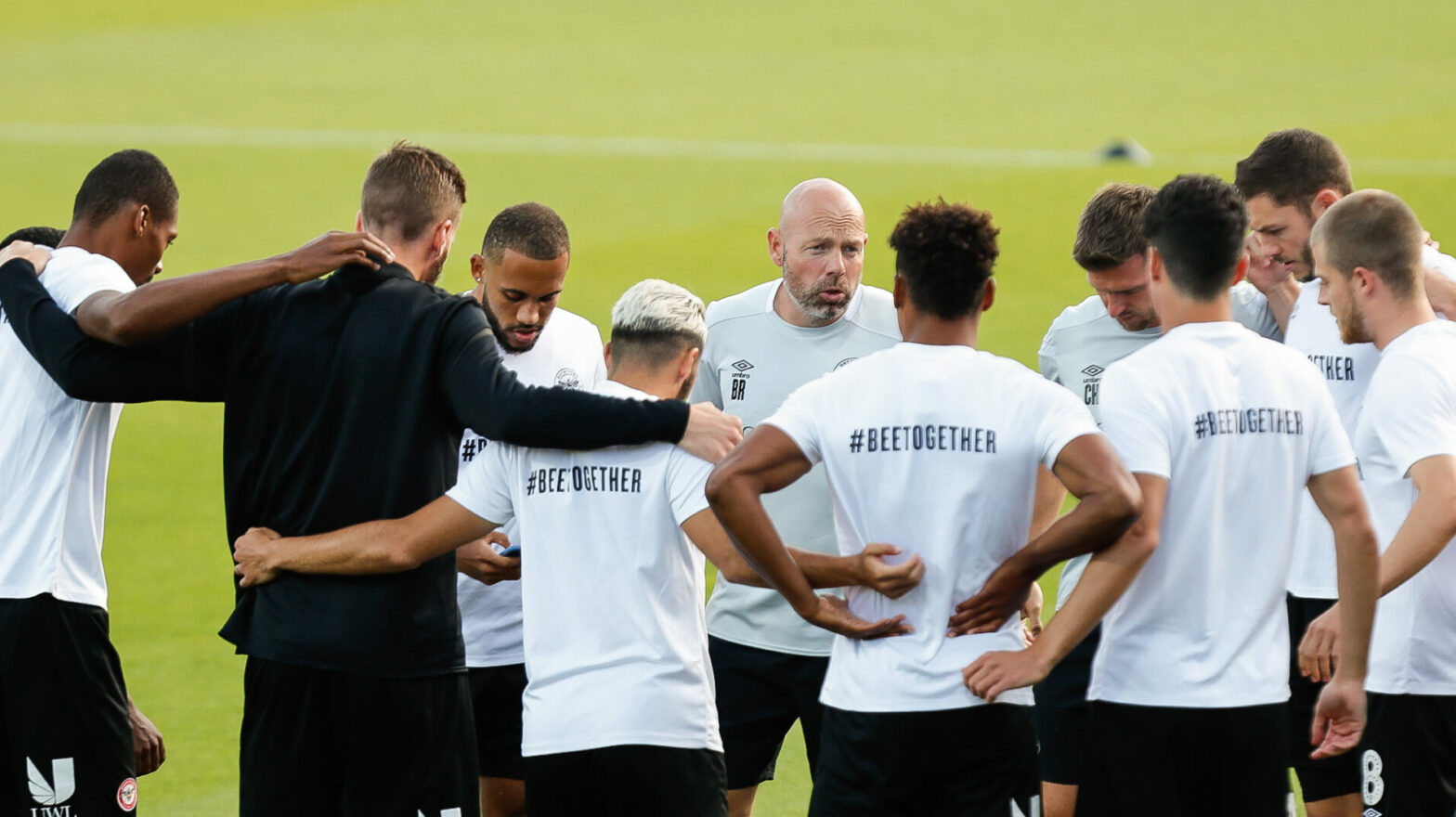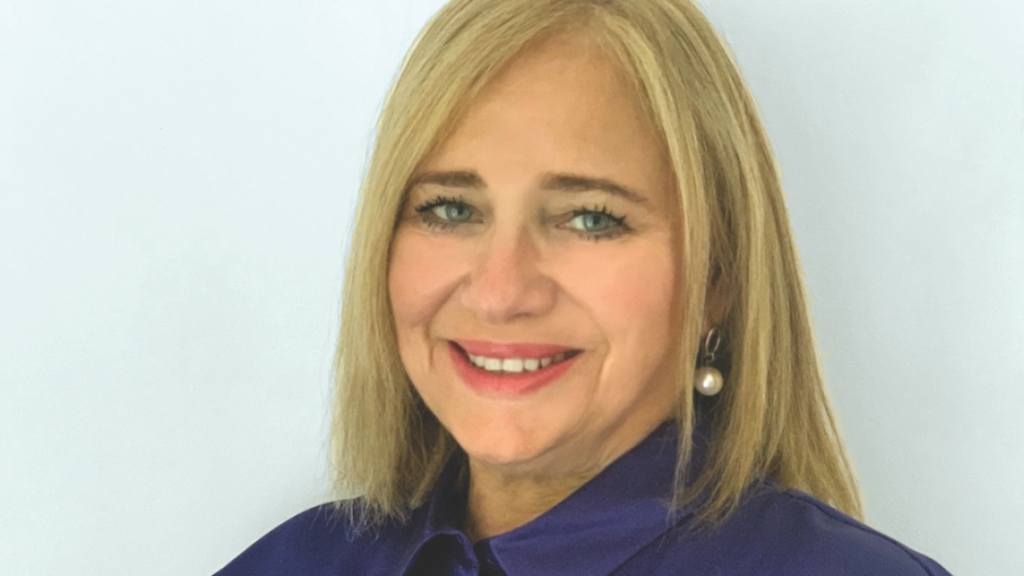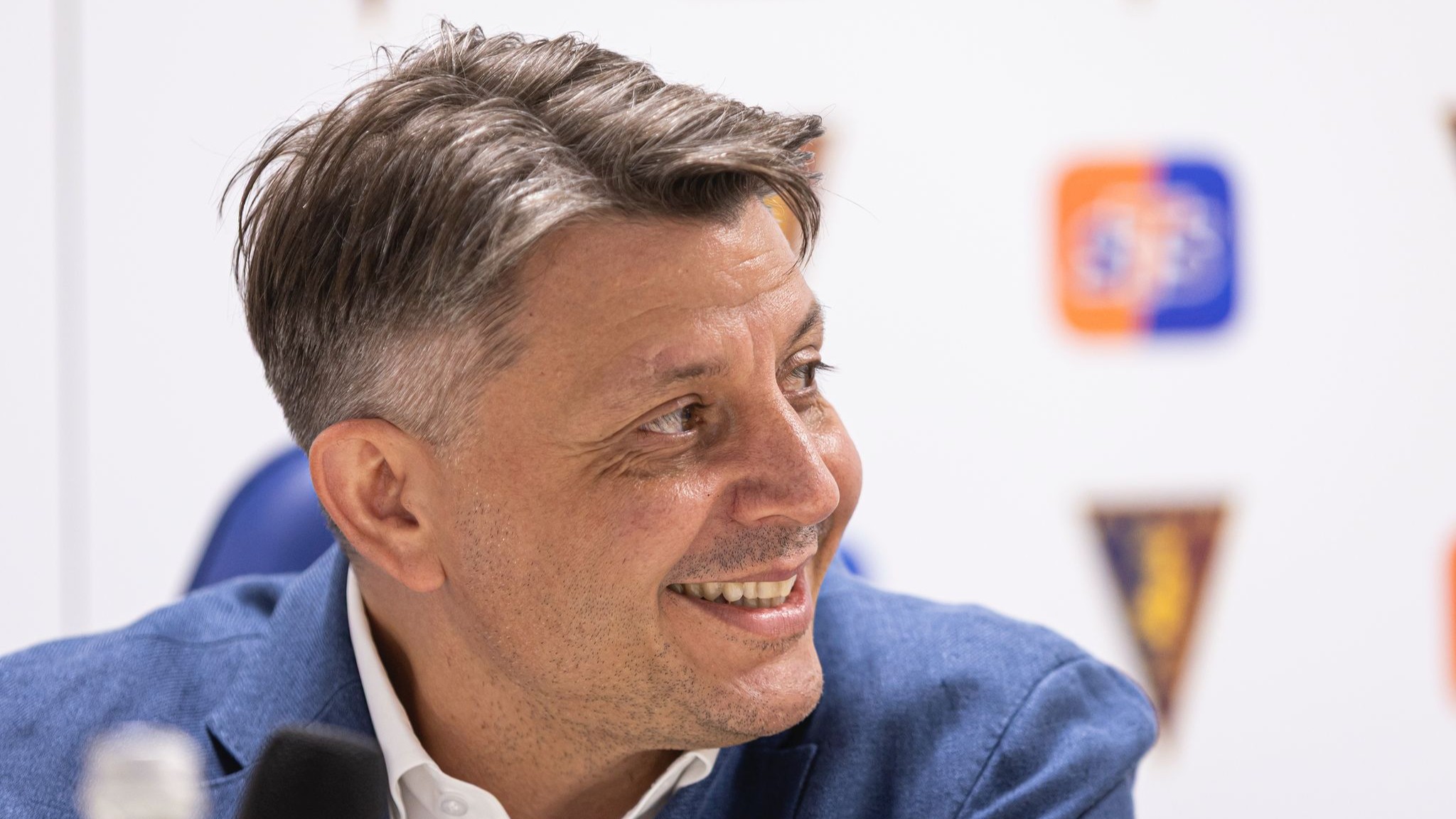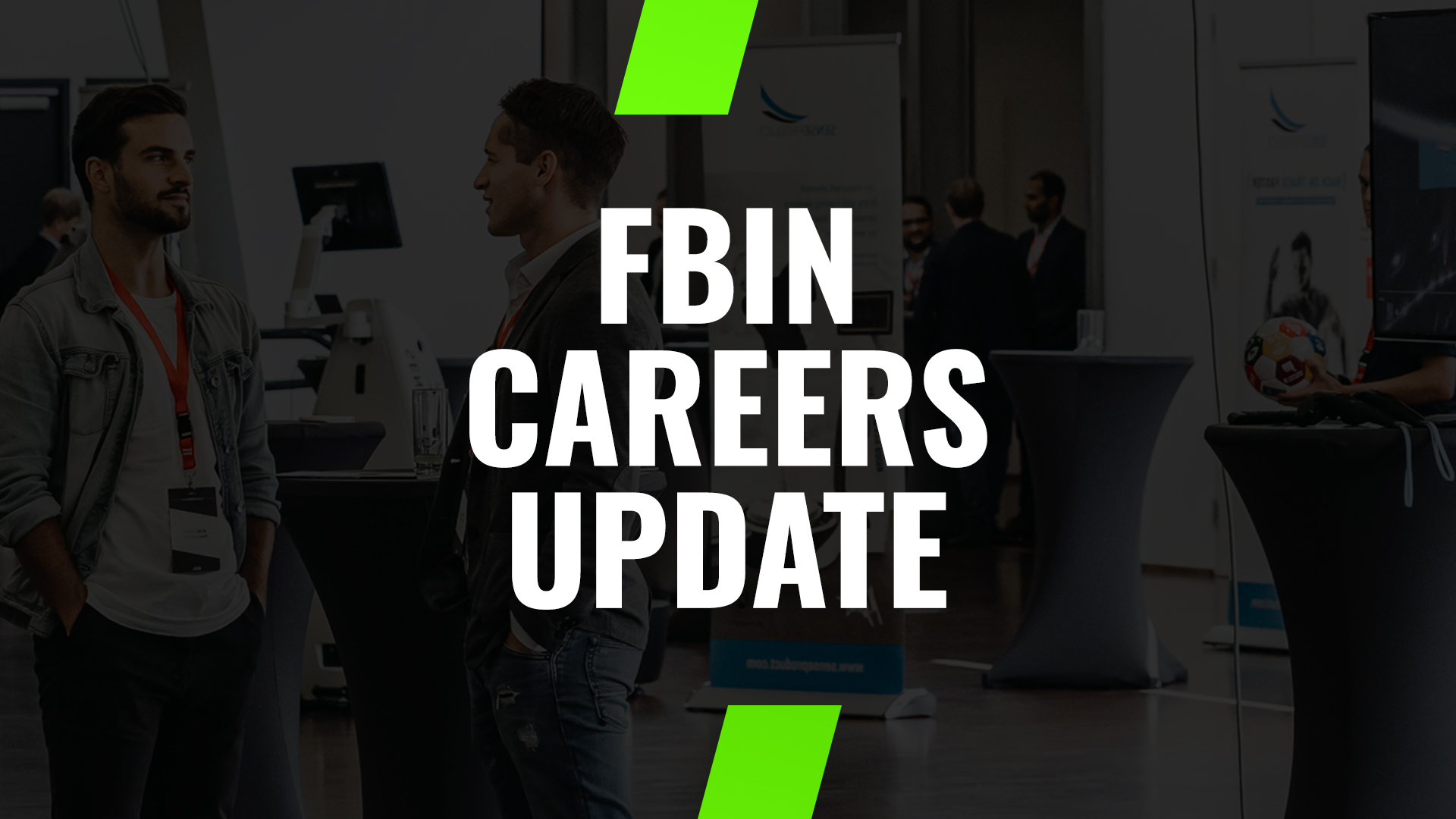Monique Choudhuri is Non-Executive Director at the new Premier League club Brentford FC. She is a leading personality in promoting diversity and inclusion in football and beyond. We talked to her about her role at Brentford, her work as Inclusive Leadership Consultant and the topic of “Women in Football”.
An interview by Shrey Upadhyay.
You are the Non-Executive Director at Brentford Football Club and Board Director at Women in Football. Can you please briefly explain your roles and responsibilities at both organizations?
At Brentford, I sit on the board. I have two remits. I am the board specialist for leadership and organizational development, and I am also the board champion for equality, diversity, and inclusion (EDI).
I oversee anything that is within the leadership domain. When there is any leadership or organizational development initiatives, I will speak to the CEO about it. I will make sure that we jointly speak about whether it is a good initiative, whether it benefits the club or not. I have quarterly meetings with the HR team to talk about key personnel changes that are going on, but it is the executive team to that activate everything on a daily basis.
In terms of EDI, our strategy is to be the most inclusive club in the UK. We are driving inclusivity by looking at several areas like fan attraction, fan engagement, best practices in terms of what we do, procedures, policies and how we recruit and manage social media, and how we can become a shining example of a good community club i.e., a club that engages with its community, fans, and stakeholders. My role is to drive our equality, diversity, and inclusion strategy both inside and outside the club.
A lot of organizations have a separate EDI department, and that is where EDI stays, but that is not the same for us. We have a Head of EDI. His job is to collaborate with all the senior leaders and everybody within the organization to make sure that EDI is considered when we are making business decisions. So, it comes from the board, filters down through the senior leadership, goes down to the teams on the ground, and filters out towards the fans and the community.
The job of Women in Football is to accelerate, accentuate, and improve women’s representation, both on and off the pitch. And hopefully to mitigate some of the discrimination that happens within that.
At Women in Football, I am the chair of the personal development committee and I also sit on the consultancy and corporate membership committees. My role is to help them develop their leadership courses and commercial offering and to be an advocate for our work. We have a flagship leadership course. This is sponsored by Barclays, who sponsor the Women’s Super League as well. I develop and deliver that course as well as several consultancy offerings to other organizations.
You are also an Inclusive Leadership Consultant. Can you please elaborate?
As an Inclusive Leadership Consultant, which I do not just do in sports, my role is to go into organizations and look at how EDI is embedded into their strategy. Not just from the point of view of ticking boxes. How well do you understand what people need to thrive in an organization? How do you create an inclusion principle and an inclusive environment so that people show up, feel that they belong, are treated fairly, valued and do really good work? I believe that once you get inclusive leadership right, you get fantastic innovation, high-level engagement and high-performing multicultural teams.
Inclusive leadership is about ensuring that people feel included despite their backgrounds. So, inclusive leadership consultancy is about going in, assessing, and auditing a business by asking several key questions, which could be anything from 30-70 questions, about how the organization works across all levels. We build a picture to find out what is working and where the gaps are using measures and indicators like ingroup-outgroup thinking, allyship, personal leadership, talent development and management, performance management, etc. Then making some recommendations to close gaps and create a better thriving organization through the lens of inclusion.
Brentford Football Club is a pioneer in promoting diversity and inclusion. Can you please provide us with some insights, EDI strategy, initiatives, and upcoming projects?
We have done several things. One of our big focuses is on tackling racism and discrimination. We have done that by being one of the only clubs in the Premier League and the English Football League to publish a social media policy with a very clear table of sanctions. Which might result in a ban, lifetime ban or education for the people. We work very closely with Kick It Out. Our ambassador of the club, Marcus Gayle is also one of the Equality Inspires tutors for Kick It Out and he helps us with some of the education.
The FA developed the Asian Inclusion Plan last year. We are also working on a similar plan to activate an Asian engagement strategy.
Another project that we are working on is how we can engage more people with disability. We want to make sure that when people with disability come to the club, we are inclusive in terms of their matchday experience.
We are also making efforts in making women feel welcome and safe within our club. We are trying to not just do tokenistic programs like international women’s day, black history month or LGBT history month, but keeping all these initiatives going throughout the year.
We have changed our recruitment processes, protocols, and policies. We have written an internal paper which has been published in our handbook. The paper is about changing the way we recruit so that we have a broader range of people that are attracted to our club. By doing so, we go more broadly and deeply out to communities and further afield to track people. We feel that if we do that, people from the community will see that we are a more diverse club. Which in turn will attract them to get involved with the club as a fan, volunteer, or employee.
We are working much more closely with the players as well, which is fantastic. We are also working with our community sports trust on some joint initiatives because they are a CSR organisation in terms of social impact themselves. Our trust is already working and outreaching the community. Their job is to return social impact out to the community.
Brentford football club is renowned in the world of football for data-driven football recruitment. Do you use any unique approach while recruiting directors, executives, or staff in any unbiased manner as well?
Yes. We know that the data science approach drives our decision making on the pitch, but we want to take that data-driven approach and replicate it off the pitch as well.
For example, recently, we have done a whole EDI audit and an inclusive leadership audit within the business to look at how our leadership and inclusion overlap and come together. We are looking at how to drive inclusion through our businesses, leaders, and board. For example: how to make people feel like they belong, how we make decisions, whether they have got a seat at the table, creating a speak-up culture, and making it safe for people to report anything they see if it might be discriminating behaviour. Our reporting mechanism is tight.
When it comes to recruitment, we have adopted a different recruitment practice. We have probably advertised more, farther and wider than ever before. We have also extensively activated our networks, that would not be just our little personal book networks. For instance, I am reaching out to authorities in organizations like Sporting Equals and Kick It Out asking for recommendations. Whom do they know, and think could be fit for the roles? And I encouraged those people to go out to their networks and so it permeates out.
Once we have attracted all of these people, we are going through a very fundamental process of three rounds of interviewing where every panel is diverse. We have people of different faiths, colour and gender in terms of representation on every panel. Each round is going to be a very transparent set of questions that have been determined by benchmarking some core competencies that we want from a role. Based on that, the weighting is set on how important these are for the role of non-executive director. Now we are using the same modelling for every leadership role within the organization.
Also, we do not make decisions quickly. We wait and allow ourselves some time to consider revisions.
Can you please explain the status of women’s involvement in football, especially in leadership positions? What are the possibilities in the future? How is Women in Football working towards it?
Women in Football is working hard towards it as they have increased their membership to 5,000 people, which is extremely good, with a target to reach 10,000 by the end of 2023. We have also launched corporate memberships that give us the ability to form stronger alliances and partnerships with the Premier League clubs, other clubs, and other governing bodies. It allows us to be able to go into those organizations and specifically train their women and their leadership teams in areas of inclusivity and gender equality so that there are more women in senior positions.
There are still not enough women in senior leadership positions in football. We are still far away from that at present, but I think we are going to be much closer in three years’ time. The progress is slow because there are still some outdated attitudes and a very much of an old-boys network running. What people do not understand is that when they go into a career in football, it is not all about football. It is about making a sustainable business behind football. You can play good football but if you do not get promoted, you still have to be a sustainable business. You need to focus on sponsors, partners, accounting, marketing, PR, HR, EDI, safety, stadium operations, etc. And there is no reason why women cannot take senior positions in all these departments.
At Brentford, one of our most senior positions is held by a woman of colour. Lorna Falconer is the Head of Football Operations. Our Fan and Community Relations Director is a woman. Our Club secretary who does the transfers is a woman. Her assistant is a woman. Some of our partnerships and sponsorships teams and senior people are women- 22% of our staff are women. I would like to see that number go up much further. If we get these recruitment processes right and if we have the people to apply it will go up.
But every club has got a long way to go. You might have women in the workforce, but do you have them in senior leadership positions? For me, it is not only about women just coming in and doing jobs. It is important that when women go into a club, they can see that there is a pathway towards the top. They can look up at females in a senior position and think if they did it, I can do it too. You have to see it to be it. And if you are not seeing it, you cannot be it.
Sport England introduced some clauses in A Code for Sports Governance to encourage diversity in sports organizations. Are there any such initiatives by the top football bodies like the FA, EFL or the Premier League as well?
Yes. The FA Football Leadership Diversity Code has been applied in England. 46 clubs out of the 92 clubs across the EFL and the Premier League are signatories of it at present, and we are one of them.
There is not enough diversity at coaching and leadership levels in football. Through the Leadership Diversity Code, the FA is trying to drive more inclusion in the English game. The non-mandatory code specifies a percentage quota to encourage more people from diverse backgrounds and genders to become coaches and executives at the football clubs.
For instance, the hiring target for executive positions is 15% from Black, Asian, and minority ethnic (BAME) heritage, with 30% female. It can be difficult to find people for senior leadership and team operation positions within football. So, you probably have to go outside of football. And there is no reason not to do that because you do not need to know everything about football to run a football club.
For coaching roles in men’s professional football clubs, the code suggests 25% of total new hires and 10% of senior coaching appointments will be from Ethnically Diverse backgrounds (BAME). Additionally, in women football clubs, 50% of the new coaches will be females with 15% BAME. The diversity of women players is not as great as the diversity of men’s players yet, but it is getting there.
The code is not easy to implement for everybody. For instance, at Brentford, we do not have an Academy, so we have a small team of management. It is not easy for us to get diversity within that small team. Nevertheless, our Head of Women’s Team is a black male. Also, we have a person of Asian Chinese origin working in the performance department.
The most important thing is that rather than quotas, it is about hiring targets. It is about giving people targets that they can aspire to. So, what the FA has done is not just given the targets, they have also provided some resources for assistance. They have given recruitment platforms; companies that help with recruitment, data sources, who are recruiting, how they are recruiting, ways to recruit, and courses on how to recruit people from different backgrounds. I just think it will be difficult for us to achieve these targets, but we will get close because we are focusing on them.
The Premier League have recently added a code that is similar in terms of hiring targets. However, there is no such thing in operation for the EFL. But I suspect that they will adopt one in line with the FA and the Premier League very soon.
Can you please explain the importance of diversity and inclusion in boardrooms and robust governance? How can diversity and inclusion reward a sports organization economically?
In corporations, Deloitte has done a really good job in measuring the impact of having diverse hires in boardrooms and senior leadership positions. And they said, it adds a 10% advantage to certain departments and maybe more in others. In sport, we have not measured it yet.
I think we need diverse boards because if you have people with different backgrounds around the table, you will get multiple perspectives and thinking. Therefore, you will come to different decisions and think differently.
Also, when the people within the team and staff see that that the board is diverse, they believe “I can do that too”. They think the board represents me as an individual within the business. It creates a sense of engagement. Then there is a sense of belonging, fairness, justice, and transparency. Therefore, they turn up to work more motivated and engaged, perform better, which ultimately increases the bottom-line result.
To understand the impact of having diverse boards, you would need to study it over two to three years. So, look at your profits and outputs for a certain period, and then compare it 12, 18, 24 months later. It has been proven in corporations. It is not yet been proven in sport, but I think we are on the cusp of starting that mechanism now.
What are the biggest challenges in implementing diversity and inclusion in a football club?
Recruitment. I think it is about where you go and find your people. If you look within a certain section of society, you are going to always get the same people coming from that certain section of society. You have to widen your base. For example, there are Black and Asian lawyers. There are lawyers with disability. There are lawyers of different sexuality and faith. But we look in a very narrow pool and football is a narrow pool. So, if you are always looking within your narrow pool, you are going to get what you have got before. You have to either take people from your local community, train them if required or you have to bring in people from outside the world of football.
The problem is if a club is doing very well, making money, able to pay millions to footballers, and getting sponsorships, what is the imperative for them to change their thinking about it? I think the only way that it could change is to understand your brand as a club and what your CSR is.
So, a lot of it is not only based on recruitment and pathways available but also looking outside of football to drive competencies and new hires. Otherwise, we are all fishing around in the same pool. We are never going to grow.
What is your advice to those who are reading this interview?
I think if you get inclusion right, diversity takes care of itself. With inclusion, nobody is marginalized; nobody feels different. Make them feel that their identity, background, age, ethnicity, ability, sexuality, faith, and gender does not matter. Yes, their differences are known, but they are treated fairly and equally with everybody else.
There is a lot of leadership knowledge that talks about ‘discretionary gold dust’. Discretionary gold dust is where you create an environment for people to thrive so they can bring their whole authentic self to work. Therefore, they do their best work, innovate, and engage. Because you are making it so easy and interesting for them to bring their whole selves to work, they give you more than expected. Even more than what they are paid for. Not because they have to, but because they want to. So, you have committed people rather than compliant and complacent people.
Different people have lived different experience and have stood in different shoes. They see the world through a different lens. Through diversity and inclusion, you leverage a massive global competitive advantage by utilizing multiple holistic perspectives from different lived experiences. You take advantage, in the nicest possible way, of all the great skills and talents you have in the business.
If you do not try it, how would you know? Also, by not trying it, you are excluding talented personnel from numerous communities across the world who otherwise might produce fantastic benefits for your organizations that you have never leveraged. And I think, if you do not, you are going to wake up in two years’ time and get exactly what you have got right now. You might be successful, but could you have been even more successful?

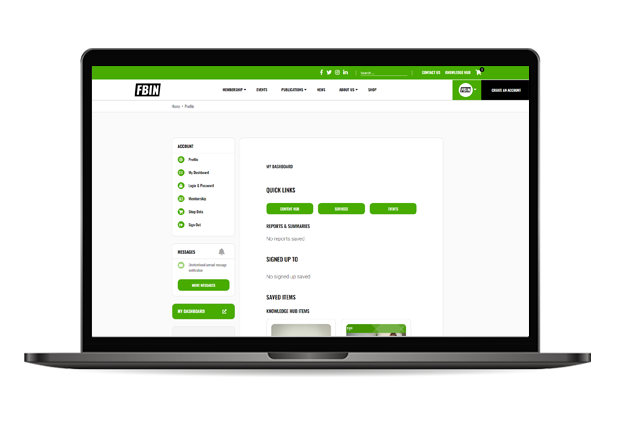
 Upgrade to Premium Now
Upgrade to Premium Now
